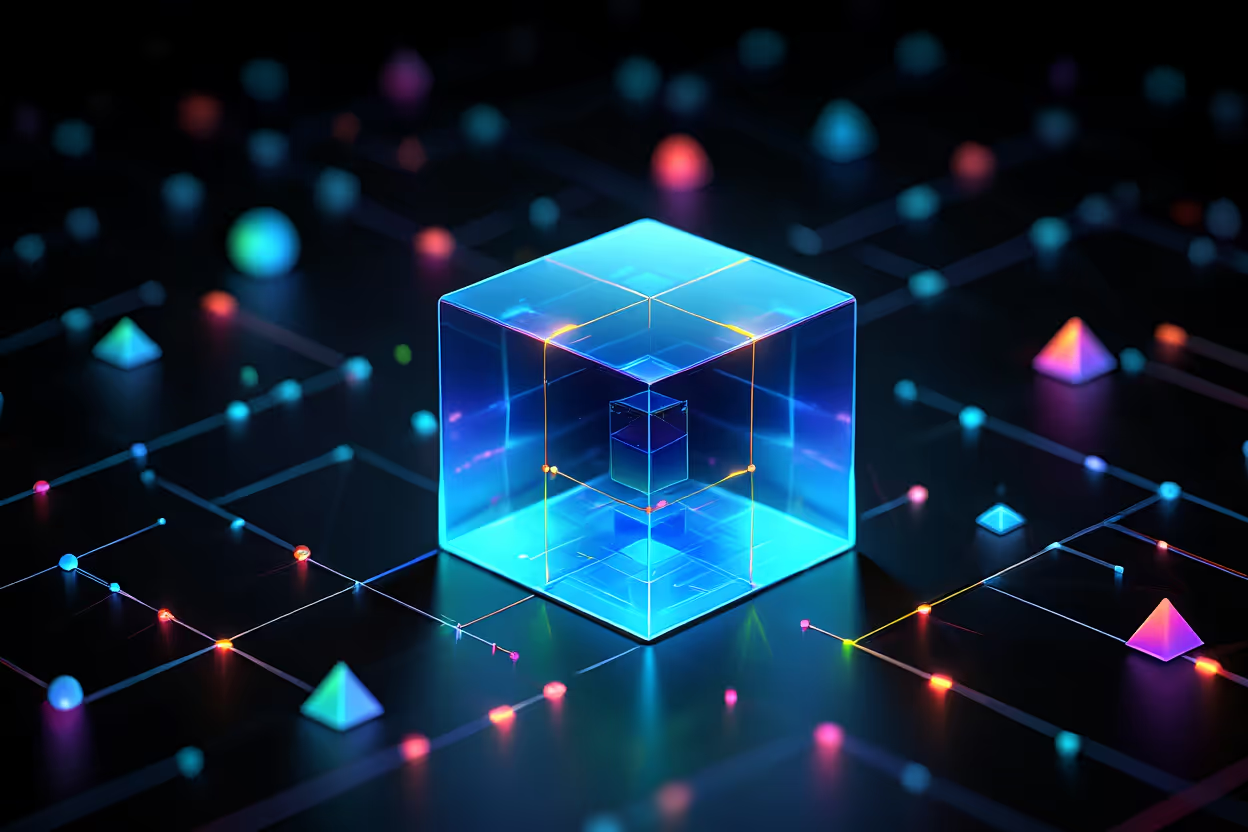Discord servers are central hubs for many crypto and Web3 communities. But some have moved beyond chat rooms to become Decentralized Autonomous Organizations (DAOs), where decisions aren't controlled by a single leader but made collectively by members. This shift reflects the growing trend of decentralization in blockchain projects.
DAOs offer a new way for communities to govern themselves, manage funds, and build projects with transparent rules encoded on a blockchain. For crypto founders, blockchain innovators, and VCs, understanding this transition is key. This article will explain how a Discord server can transform into a DAO, the challenges you might face, and the benefits that come with it.
Understanding Discord's Role in Crypto Communities
Discord has become the go-to platform for many crypto groups, and for good reasons. Its design suits the high-speed, information-rich environment of blockchain projects where instant interaction matters. Beyond simple chat, Discord offers tools that keep crypto communities focused, organized, and ready to engage with blockchain technology directly. Let’s explore why this platform stands out and how it supports community growth and governance.
Why Crypto Communities Prefer Discord
Crypto communities thrive on real-time communication, and Discord delivers this with minimal lag and clear conversation threads. This allows members to share updates, trade ideas, and make decisions quickly.
Three main features make Discord attractive for crypto groups:
- Real-time messaging: Members can engage in fast discussions, essential in markets where timing affects outcomes.
- Channel organization: Servers can have many channels dedicated to specific topics, use cases, or projects. This keeps conversations neat without overwhelming users.
- Blockchain integrations: Discord supports bots and apps that connect with wallets, track token balances, or automate alerts for smart contract events. These integrations bring blockchain tools right into the community's daily workflow.
With these features, Discord isn’t just a chat app; it acts like a central nervous system for crypto projects.
Community Building Features of Discord
Managing a large, active crypto community requires more than just chat rooms—it demands structure and automation. Discord offers built-in tools to meet these needs:
- Bots: Automated helpers can greet new members, moderate conversations, run polls, and even manage token-based access. This reduces manual work and enforces community rules smoothly.
- Roles: Server admins can assign roles to members that grant different permissions or signal status within the group. For example, roles may distinguish between founders, contributors, or investors.
- Governance tools: Some servers integrate voting mechanisms via bots, enabling members to vote on proposals transparently. This aligns with the DAO concept, where community members gain direct control over decisions.
Combining these features turns a Discord server into a living ecosystem where the community manages itself and moves closer to decentralization.
Discord’s flexibility, combined with its strong community management features, makes it the natural platform for crypto projects looking to organize and grow efficiently. How can these tools be used to shift from a traditional server to a full DAO? The answer lies in how roles, bots, and voting mesh with blockchain protocols to hand power to the community itself.
What is a DAO and Why Does it Matter?
A Decentralized Autonomous Organization, or DAO, represents a new model of organization built on blockchain technology. Instead of relying on traditional hierarchies or central leadership, DAOs empower members to share control and decision-making. Imagine a group where the rules are clear, automatic, and open to everyone’s scrutiny. That’s what DAOs deliver by using code that runs on a blockchain to govern actions and finances. But what exactly drives this innovation? Understanding the core components of a DAO and why they matter will clarify why so many communities, especially in crypto, are moving in this direction.
Key Components of a DAO
Here are the building blocks that make a DAO function effectively:
- Smart Contracts: Think of these as self-executing contracts with predefined rules encoded directly on a blockchain. They handle everything from managing funds to enforcing community decisions automatically. This means no need for a central authority to approve or oversee actions — once conditions are met, the smart contract executes.
- Voting Mechanisms: DAOs rely on members voting to decide on proposals, budgets, or policy changes. This can be done through simple majority votes or more complex weighted voting, where token holders’ influence matches their stake or other criteria. Voting ensures all participants have a voice, fostering democratic governance.
- Token Distribution: Tokens act as both a representation of ownership and voting power within the DAO. How tokens are distributed — whether equally, by contribution, or through investment — shapes the dynamics of control and incentives. Tokens can also unlock access to services or rewards, further aligning the interests of the community.
Together, these components create a system where rules are transparent, decisions are collective, and the process runs without a central gatekeeper.
Benefits of DAOs over Traditional Organizations
Why choose a DAO over conventional companies or clubs? The advantages are striking:
- Transparency: Every action, transaction, and decision can be publicly verified on the blockchain. This openness makes it difficult for hidden agendas or misuse of resources to occur.
- Trustlessness: Since smart contracts enforce rules automatically, members don’t need to trust a leader or intermediary. The code guarantees outcomes, reducing risks of fraud or bias.
- Community Ownership: Rather than top-down control, DAOs distribute power among members. Everyone invested in the DAO’s success can contribute ideas, vote, and influence direction, creating a shared sense of responsibility and purpose.
Consider a DAO as a well-oiled machine that runs on open, trusted software and shared ownership, rather than a single operator. This changes how organizations operate by flattening power structures and increasing accountability. For founders and investors, this means a new form of governance that can scale globally with fewer barriers.
Understanding these basics sets the stage to appreciate how a simple Discord server can evolve into a DAO, empowering communities to govern themselves in real time. For a deeper look at how community governance works in crypto, explore more about community-driven projects and token management.
The Journey from Discord Server to DAO
Turning a lively Discord server into a fully functioning DAO involves more than tech upgrades. It's a shift in how the community works together, how decisions get made, and how the project lives on-chain. This transformation unfolds in stages, starting with building trust and consensus, setting up reliable technical infrastructure, and finally launching governance tokens to share control. Here’s a clear look at what happens along this path.
Building Community Consensus for Decentralization
Decentralization only works if the community is ready to pitch in and shape the project’s future. Leaders in a Discord server encourage participation by:
- Hosting open discussions: Regular forums or channels for ideas and feedback help members feel heard and engaged.
- Creating transparent proposals: Sharing clear, simple summaries of changes or initiatives invites input and builds trust.
- Using polls and voting bots: These tools let members express opinions quickly and visibly, turning discussion into action.
- Assigning meaningful roles: Giving active members roles that reinforce responsibility and influence motivates ongoing involvement.
How does a leader keep everyone motivated to participate? By showing that every voice counts and that decisions truly reflect the community, not an elite few. This gradual consensus-building shifts the group mindset from simple membership to shared ownership.
Technical Infrastructure Setup
Once the community embraces decentralization, the next step is linking Discord with blockchain tech. This integrates off-chain conversation with on-chain governance.
Key points in setting up infrastructure include:
- Selecting a DAO framework: Platforms like Aragon, DAOstack, or Snapshot provide templates and tools tailored to DAO needs. Choosing one depends on the project’s goals and technical comfort.
- Connecting smart contracts: These self-executing contracts handle voting, proposals, and fund management automatically on the blockchain.
- Integrating with Discord bots: Custom bots bridge the gap by syncing wallet addresses, reporting vote results in channels, or granting token-based access.
- Securing data flow: Using APIs and webhooks ensures that Discord actions correspond to blockchain events in real time, avoiding discrepancies or delays.
This technical layer makes the DAO operate smoothly without manual overhead, enabling a new level of transparency and automation.
Deploying Governance Tokens
Governance tokens give members a stake in the DAO’s success and a voice in its rules. Their launch is a key milestone.
Essential elements of token deployment include:
- Token design: Deciding how many tokens exist, their supply limits, and whether they are inflationary or fixed.
- Distribution model: Tokens can be airdropped to existing members, earned through contributions, or sold to investors. The model chosen affects power dynamics and incentives.
- Initial governance setup: Defining voting rules, quorum requirements, and proposal processes ensures orderly decision-making.
- Community onboarding: Providing guides and support encourages members to use tokens for governance and value participation.
At this point, the Discord server fully evolves into a DAO, where token holders design the project’s path together, backed by blockchain security and transparency.
These steps together show how a simple chat space can transform into a powerful decentralized organization that truly belongs to its members. This transition demands patience, communication, and clear technical choices — but the result is a community-run entity built to thrive.
Challenges and Solutions in DAO Formation from Discord Communities
Transforming a Discord community into a DAO is an exciting but complex process. Along the way, groups face several hurdles that test their resilience and planning. Understanding these challenges upfront and addressing them with practical solutions is essential for building a strong, trustworthy, and active DAO. This section breaks down the main challenges founders and members meet and what strategies work best to overcome them.
Security and Trust Issues
Security is at the heart of any DAO's success. Since DAOs handle funds and sensitive information, they must protect themselves against fraud, hacks, and insider threats. On Discord, a platform not originally built for decentralized finance, risks multiply because members may unknowingly expose sensitive data.
Strategies to protect the DAO and its members include:
- Smart contract audits: Before deployment, get professional audits of your smart contracts. This finds vulnerabilities that hackers could exploit.
- Multi-signature wallets: Require several trusted members to approve fund movements. This reduces the chance of a single bad actor draining the treasury.
- Role-based access control: Use Discord roles to limit who can propose or execute transactions. Only verified members should have high-level permissions.
- Education and awareness: Train community members about phishing, scams, and safe crypto practices. Regular warnings and updates help prevent social engineering attacks.
- Transparency: Publish financial transactions on-chain and provide regular budget updates on Discord to build trust and deter misuse.
With these safeguards, members feel more confident that their contributions and assets are secure. Are your key contracts thoroughly tested? Do you have clear processes for responding if a security issue arises?
Sustaining Active Community Involvement
A DAO only thrives with active participation. But keeping members engaged over time requires ongoing effort, especially when community members have busy schedules or lose interest.
Maintaining momentum means creating a cycle where involvement is rewarding and governance feels fair. Here are some proven approaches:
- Incentives: Reward members who contribute through tokens, recognition, or exclusive opportunities. Align rewards with genuine value adds, so participation feels worthwhile.
- Clear governance processes: Document how proposals are made, voted on, and implemented. A transparent, straightforward process reduces confusion and frustration.
- Regular communication: Use Discord channels for updates, Q&A sessions, and informal chats. Schedule AMAs or town halls to keep the pulse of the community.
- Role assignments: Grant roles or titles that reflect contribution levels, encouraging continued commitment.
- Gamified participation: Introduce challenges, leaderboards, or milestone celebrations. Fun elements motivate users who might otherwise be passive observers.
How do you keep your members motivated to take part beyond casual chat? What steps ensure new participants quickly understand how they can influence decisions?
Navigating Legal and Regulatory Landscapes
DAOs operate in a grey zone of law and regulation in many countries. This uncertainty can expose members to risks if legal compliance is overlooked. Founders must balance decentralization with necessary clarity on rights and responsibilities.
Key compliance steps include:
- Defining the DAO’s structure: Decide if the DAO functions purely as a community or if it takes on legal form (such as an LLC) to limit liability and enable contracts.
- Know Your Customer (KYC) and Anti-Money Laundering (AML): Some DAOs may require KYC for token distributions or treasury access, depending on jurisdiction.
- Securities laws: Check if governance tokens qualify as securities, which may require registration or exemptions to avoid penalties.
- Clear terms of use: Publish transparent policies about member roles, voting rights, and dispute resolution.
- Professional legal counsel: Consult lawyers with blockchain expertise to tailor compliance efforts to your DAO’s activities and locations.
Taking these measures does not mean killing decentralization but protecting members and the project from unintended legal consequences. How does your DAO handle potential regulatory issues? Have you prepared to adapt as laws evolve?
Addressing these challenges head-on will power your Discord community’s transformation into a robust DAO. The combination of security, engagement, and legal clarity lays the foundation for lasting decentralized governance.
Impact of the Discord-to-DAO Model on the Future of Web3 Communities
As more Discord servers shift toward becoming DAOs, the way communities organize and operate is changing drastically. This transition isn’t just about adding blockchain tech; it reshapes how power flows and creates new financial and collaborative opportunities. Let's explore how this model influences decentralized governance and what it means for founders and investors stepping into Web3.
New Governance Paradigms for Decentralized Communities
The Discord-to-DAO model swaps out traditional leadership hierarchies for distributed decision-making. Instead of a few admins calling the shots, governance tokens spread influence across active members. This change alters power dynamics by:
- Shifting control from individuals to groups. Voting on proposals gives everyone a voice based on their stake or contribution.
- Increasing transparency and accountability. Decisions recorded on-chain prevent hidden agendas or backdoor deals.
- Encouraging active participation. Members feel motivated when their input directly shapes policies, funding, and project direction.
- Establishing clear, codified rules through smart contracts. This reduces disputes by automating enforcement of decisions.
Imagine it like a roundtable where every seat matters, rather than a stage dominated by a single speaker. This model demands a new mindset, emphasizing collaboration over command. The challenge lies in designing fair voting systems and managing diverse opinions without falling into decision gridlock.
Opportunities for Founders and Investors
This shift from a closed community on Discord to an open DAO unlocks fresh opportunities:
- New funding routes. Founders can raise capital by distributing governance tokens to community members or investors, aligning incentives from the start.
- Broader collaboration. DAOs offer a ready-made framework for contributors worldwide to join, trustlessly participate, and co-create products.
- Shared risk and reward. Investors gain more than just equity—they hold a governance stake that impacts project outcomes.
- Market validation. Active DAO participation signals genuine community support, helping VC investors gauge a project's real-world traction.
- Faster iteration cycles. Direct feedback loops from token holders accelerate development and pivoting, keeping projects aligned with user needs.
For founders wondering how to fund growth without losing control, DAOs offer a balanced answer: decentralize decision-making while aligning interests through token economics. Investors, meanwhile, tap into an engaged, self-driven community that helps steer the project’s success.
The Discord-to-DAO transition is not just a new organizational model. It is a strategic pathway for communities, founders, and investors to engage in Web3 with transparency, shared ownership, and momentum that can’t easily be copied or centralized. As DAOs grow, their governance methods and collaborative funding models will start to define how Web3 projects flourish long-term.
Conclusion
The journey from a Discord server to a DAO highlights how communities can move beyond chat rooms to shared ownership and on-chain governance. This change offers crypto founders and investors a transparent, automated way to drive decision-making and funding through collective input.
As projects aim for greater decentralization, this model provides a practical blueprint for building strong, engaged communities with clear voting structures and token incentives.
Considering how this approach reshapes power dynamics within a project can help founders design flexible governance and unlock new investment possibilities. What steps will you take to bring more community control and trust into your venture?






